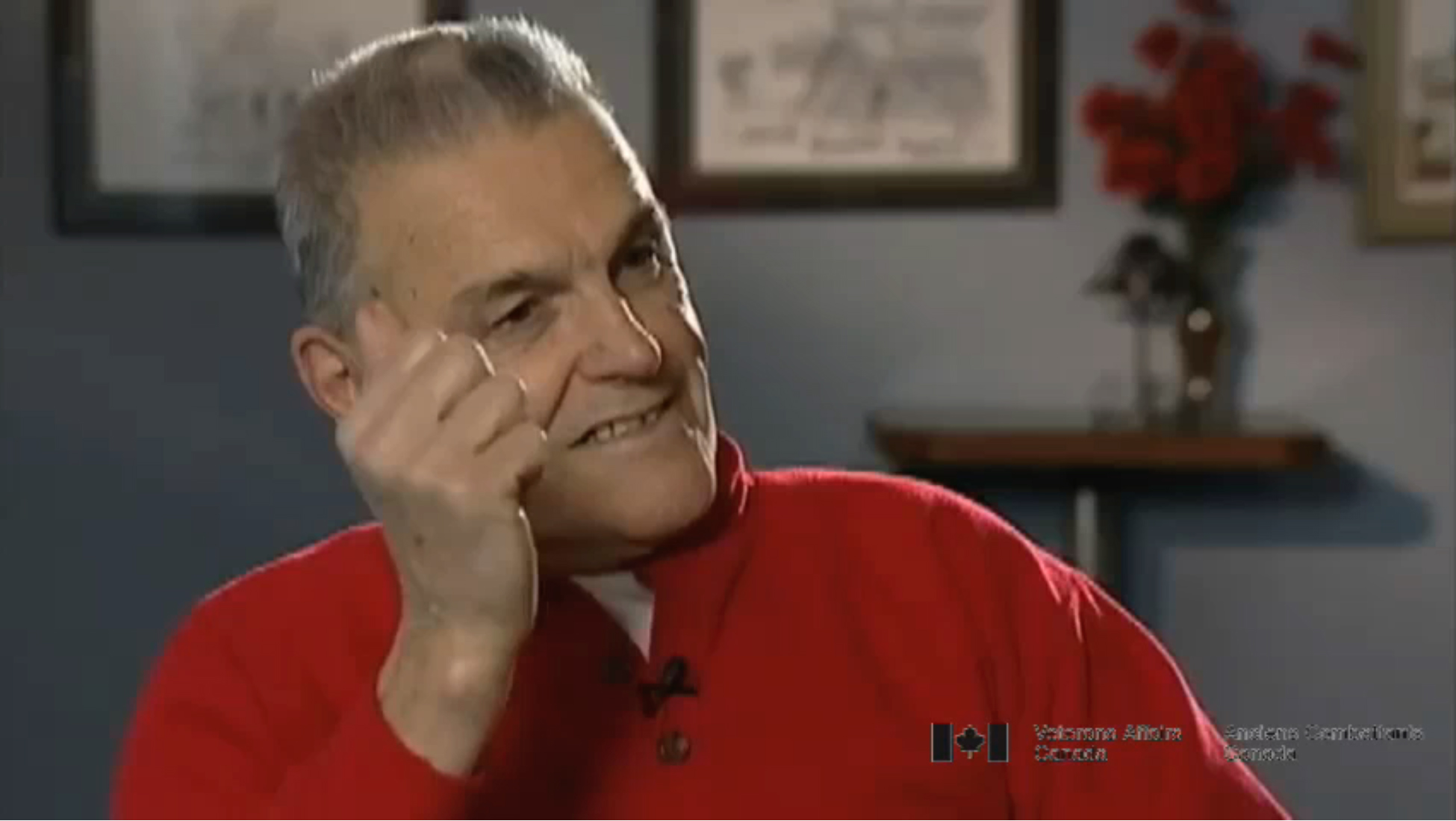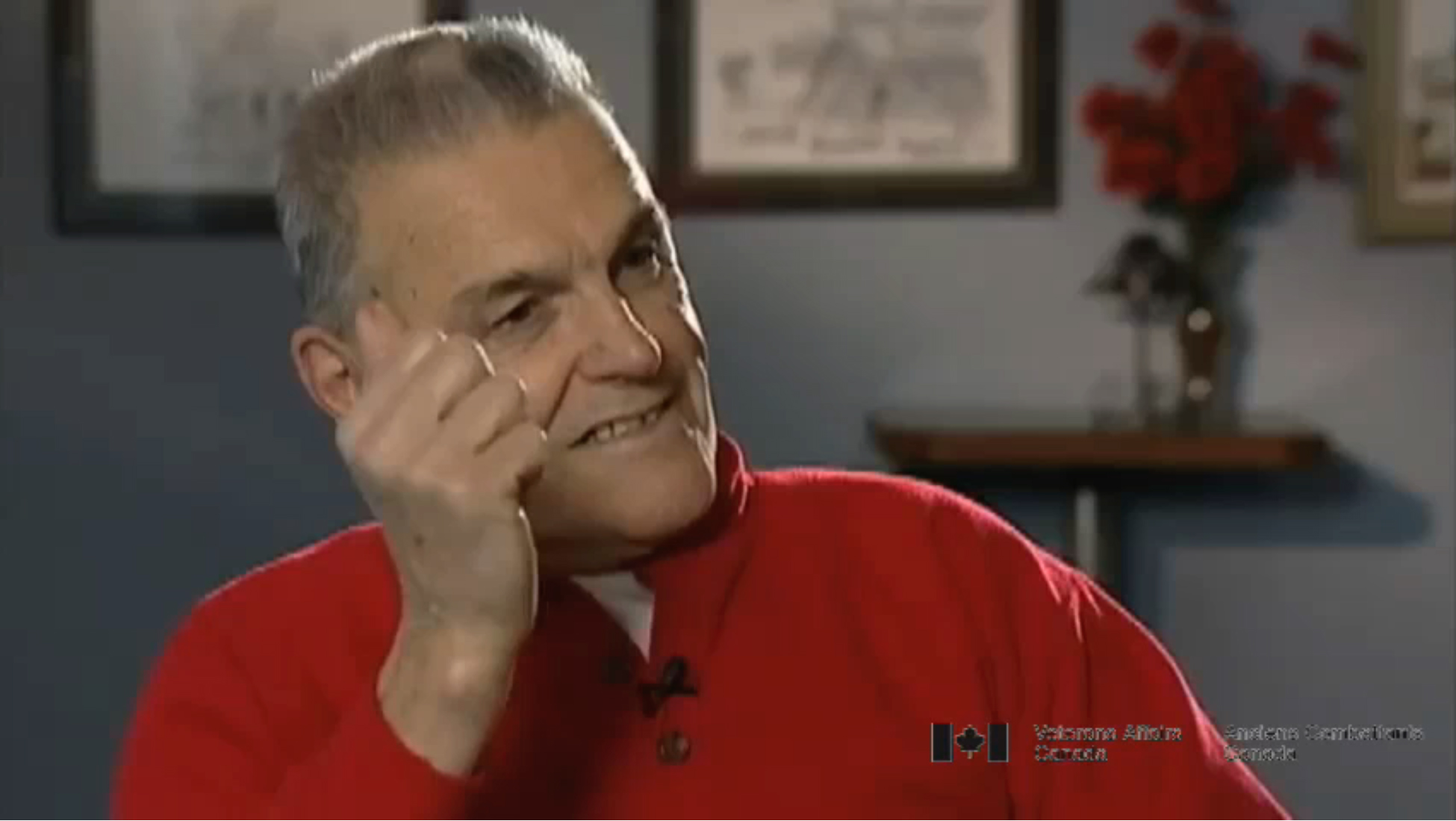Patrolling Korea
Heroes Remember
Patrolling Korea
Transcript
Lot of hills, more than you would expect, but it was just like
the foothills in Canada. A lot of cases, very dry in the off
season. Biggest thing was making sure you had enough water when
you went someplace because you couldn't just dip your canteen
into a nice flowing river and have a drink. Wasn't what I
expected, to be honest, but patrols is patrols. The guidelines
were very tough, and I didn't think they were appropriate because
you sent, or I had to send, people out or the colonel had to send
out because he was getting it from someone else, to go into areas
that they should have had more freedom to take care of themselves
and I didn't appreciate that. I could understand the patrolling.
You need the patrolling, which was good, ‘cause you have to find
out what is there, which is part of any war. But this was the
case that we were sort of the dummies, and they had all the
advantages. The war was ending in a sense. You were mostly set up
in a perimeter area. You did the patrols steady. You weren't
allowed to shoot unless someone was shooting directly at you.
But, yet, we were still putting patrols out for feelers to see
what they were doing in the front, how close they were coming by
digging and everything else. So, it was not a job that everybody
liked. I had no officer, but I did it, and I'm pleased to say
that our platoon did find most tunnels and everything else we
were supposed to find. And we did fire shots, which I told
them to. If they were in doubt, shoot, which didn't go over too
well with the brigadier, but I always had an answer that there
was someone that was there. I had put a very strong section
commander in to take the patrols out, but having no officer I
should not have been going out, in a sense, because the command
post... because you didn't just have one patrol, you had three
sections, sometimes two were out, and I stayed behind.
And one of them did get into a problem. I just radioed back to
headquarters that I was going out - took one man with me.
Knew where they were or, hopefully, I knew where they were
exactly. Got there and just said, "Follow me," and I let him,
rather than the safest route back, I took him through where they
thought we wouldn't go, it was the most dangerous,
and we walked out nice.
Description
Mr. Connelly discusses reconnaissance patrols in Korea.
Duke Connelly
Dennis Connelly assumed his name ‘Duke' shortly after enlisting in the infantry. His older brother, whose nickname was Duke, had been killed overseas in the Second World War. One of his former officers mistook Dennis for his brother, and the name stuck. Mr. Connelly did one combat mission late in the Korean War, and later went to Cyprus on a United Nations peacekeeping mission, where he was in charge of all surveillance and reconnaissance tactics. He also did infantry and paratroop training for the Canadian Armed Forces. He left the army to become a park warden in Whitehorse, Yukon Territory.
Meta Data
- Medium:
- Video
- Owner:
- Veterans Affairs Canada
- Duration:
- 03:45
- Person Interviewed:
- Duke Connelly
- War, Conflict or Mission:
- Canadian Armed Forces
- Location/Theatre:
- Korea
- Branch:
- Army
Related Videos
- Date modified:





